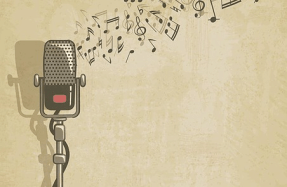DEZRON DOUGLAS
Atalaya
International Anthem
“Forward,” intones each member of Dezron Douglas’ quartet, punctuated by the percussive clack of wooden claves, at the outset of the bassist’s latest album. Based on the music that follows, Douglas regards the word not in terms of radical reinvention but simply as a reminder of the continuum of tradition.
A protégé of Jackie McLean, Douglas has been a prolific sideman across a wide spectrum of styles, working with straightahead masters (Cyrus Chestnut, Mulgrew Miller, Louis Hayes); searching firebrands (Pharoah Sanders, David Murray); modern torchbearers (Ravi Coltrane, Brandee Younger); post-modernists (Makaya McCraven); and even jazz-influenced rock artists (Phish’s Trey Anastasio).

Many of those streams converge on Atalaya, Douglas’ first full-length release as a leader in four years. The paw print on the cover seems to link the album with his 2018 EP Black Lion, which felt like a redefining effort with its boisterous sextet arrangements and influences from funk, soul, and reggae. Instead, Atalaya debuts a new quartet—with saxophonist Emilio Modeste, keyboardist George Burton, and drummer Joe Dyson, Jr.—and locks into a fervent hard-bop mode, with occasional detours into free playing or Afro-Latin grooves.
The tone is set by the title track, which follows that opening incantation with a bold, propulsive groove that suddenly erupts into Sanders-style transcendent turbulence. “Rosé” boasts the warming elegance of a lush, well-balanced wine, while “Coyoacán” takes off at a gallop and maintains that pace until its airy coda. The elusive “Luna Moth” is an aptly eclectic tribute to the inventive bassist Mario Pavone, who passed away in 2021. Douglas goes it alone on “Octopus,” venturing into electric fusion with his effects-altered bass before the band closes the album with the sultry, tango-inflected “Foligno.” Douglas brings these eclectic influences together into a cohesive sound more accessible than adventurous.
—SHAUN BRADY
RAMSEY LEWIS
The Beatles Songbook: The Saturday Salon Series, Volume One
Steele
Ramsey Lewis first found fame in the early ’60s by interpreting pop hits, specifically Dobie Gray’s “The ‘In’ Crowd,” which crossed over into the Billboard Top 10 in 1965, and the McCoys’ “Hang on Sloopy” later that year. His first major flirtation with the music of the Beatles came the following year, when the highly prolific pianist’s take on “A Hard Day’s Night” snuck into the Top 30. The Beatles Songbook: The Saturday Salon Series, Volume One, a solo piano work, was recorded in the summer of 2022, just a month before Lewis’ death at age 87.

Unsurprisingly, it’s a touching, sensitive and intelligently executed tribute. Although he sticks largely to the Fab Four’s ballads (“And I Love Her,” “Michelle”), Lewis allows himself to indulge in flights of fancy that often drift from the basic melody. That approach is stated midway through the opening track, Paul McCartney’s “Here, There and Everywhere,” wherein Lewis temporarily abandons the song’s sweet tunefulness in favor of a deep dive into note-heavy complexity. His choice to eschew accompaniment throughout the recording gives Lewis all the leeway he could hope for, and he makes use of that freedom often.
But Lewis’ respect for the composers’ intent is never abused. Whether on a song as seemingly random as “Rocky Raccoon” or one covered by thousands of artists before him (“Yesterday,” “Blackbird”), Lewis’ homages never fail to honor the Beatles’ essence, even as he puts his own distinctive stamp on a melody. If there’s one extraneous track on the dozen-song collection, however, that would be John Lennon’s “Imagine,” the only number from a solo Beatle’s catalog. It’s been done too many times by too many people, and Lewis adds nothing new to it. That aside, The Beatles Songbook is a perfect bookend to a long and illustrious career.
—JEFF TAMARKIN
FRANK ZAPPA
Waka/Wazoo
Zappa/UMe
Perhaps no other composer in history touched on so many different variations as guitarist/vocalist Frank Zappa (1940-1993), who fused rock, doo-wop, blues, jazz, classical, comedy and beyond. The new, five-disc Waka/Wazoo boxed set features alternate takes from his albums Waka/Jawaka and The Grand Wazoo, both from 1972, along with the original album tracks in Blu-Ray Audio; previously unreleased Zappa-engineered demo recordings by his keyboardist/vocalist George Duke; and a live set by Zappa’s 10-piece band from the Winterland Ballroom in San Francisco in late 1972.
There are differences from the original studio recordings, both sonically and in sequencing, since these tracks are presented in the order in which they were recorded at Paramount Studios through 1972. Zappa had returned home to Los Angeles to recover from a broken leg sustained when he was pushed off the stage by an unruly audience member at the Rainbow Theatre in London. Confined to a wheelchair, he figuratively had a guitar in one hand and a conductor’s baton in the other throughout these sessions.
Disc 1 starts with behind-the-scenes banter leading to the bluesy “Your Mouth (Take 1),” from Waka/Jawaka, followed by a slightly shorter alternate take of that album’s lengthy instrumental opener “Big Swifty.” It features Duke’s electric piano explorations, the deranged trumpet of Sal Marquez, and complex drumming of Aynsley Dunbar. Zappa’s percussion work, mostly on cowbells, is also featured in addition to his signature guitar playing.
Instrumental tracks from The Grand follow—the strutting “Minimal Art (Eat That Question—Version 1, Take 2)” and orchestral “Blessed Relief (Outtake Version)”—performed by Zappa’s 20-piece “electric orchestra.” More outtake and alternate versions extend through Disc 2, highlighted by a 15-minute “Waka/Jawaka” and a hysterical romp through “Cletus Awreetus-Awrightus” from .




